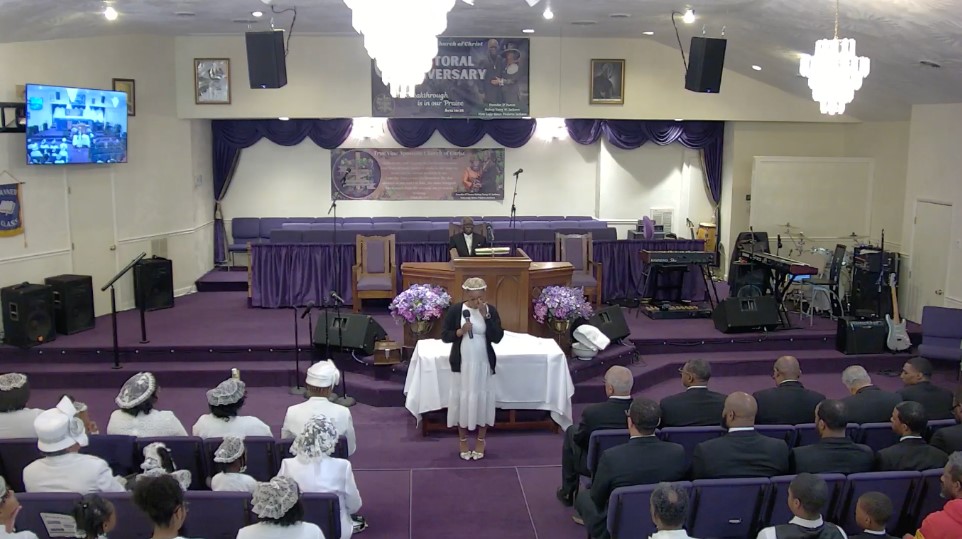The viral video capturing Pastor Terry Jackson of True Vine Apostolic Church of Christ publicly rebuking a pregnant, unmarried congregant has ignited a firestorm of controversy, raising critical questions about public shaming, religious discipline, and pastoral care. The incident, which unfolded during a Sunday service, showcases the young woman tearfully apologizing to the congregation for her pregnancy. Jackson’s response, however, was far from compassionate. He condemned her actions, characterizing the situation as “out of order,” and declared that the church would not participate in celebratory events like a baby shower. This seemingly harsh stance has divided public opinion, with some supporting the pastor’s adherence to traditional religious doctrine and others decrying his perceived lack of empathy and understanding. The incident underscores a broader societal tension between upholding religious principles and navigating the complexities of modern life, particularly regarding issues of sexuality and personal autonomy.
The central point of contention revolves around the pastor’s decision to address the young woman’s pregnancy so publicly. Critics argue that his actions constituted public shaming, inflicting unnecessary emotional distress and potentially ostracizing the woman within her own faith community. They contend that such a sensitive matter should have been handled privately, offering support and guidance rather than public condemnation. Furthermore, some question whether the pastor’s focus on the woman’s “sin” overlooked the broader context of her situation, failing to consider any potential mitigating factors or the emotional toll of an unplanned pregnancy. The emphasis on punishment rather than rehabilitation has been perceived by many as unpastoral and contrary to the principles of compassion and forgiveness often associated with Christianity.
Conversely, supporters of Pastor Jackson’s approach argue that he was merely upholding the tenets of his faith. They maintain that his actions were rooted in scripture and served as a necessary form of discipline, reinforcing the church’s stance against premarital sex. From this perspective, the public rebuke served as a deterrent, reminding the congregation of the consequences of straying from religious teachings. Moreover, some argue that the pastor’s actions reflected a genuine concern for the woman’s spiritual well-being, seeking to guide her back towards a righteous path. This perspective highlights the delicate balance that religious leaders often face between offering grace and upholding doctrinal principles.
The incident has spurred widespread debate on social media, with diverse opinions reflecting the complex interplay of religious beliefs, personal values, and societal norms. Prominent figures, such as journalist Jemele Hill, have condemned the pastor’s actions, expressing concern for the woman’s well-being and advocating for a more supportive church environment. Social media users have echoed these sentiments, questioning the need for public apology and highlighting the hypocrisy of judging others’ sins while ignoring one’s own. This online discourse reveals a growing societal emphasis on empathy and understanding, challenging traditional notions of public shame and religious discipline.
However, the pastor’s stance has also garnered support, particularly among those who believe in upholding religious principles and adhering to traditional values. Some commentators have defended his actions as necessary for maintaining moral standards within the church community. They argue that leniency towards premarital sex would undermine the sanctity of marriage and erode the foundation of religious teachings. This perspective underscores the ongoing tension between adapting religious doctrines to contemporary society and preserving traditional values. The incident has reignited a broader conversation about the role of religious institutions in addressing sensitive personal issues, particularly in the context of evolving social norms and expectations.
The controversy surrounding Pastor Jackson’s public rebuke highlights the complexities of navigating faith and morality in the modern world. It underscores the challenging task facing religious leaders as they strive to balance upholding traditional doctrines with providing compassionate pastoral care to their congregants. The incident serves as a stark reminder of the potential for public shaming and the importance of fostering empathy and understanding, particularly when addressing sensitive personal matters. Moving forward, it is imperative that religious communities engage in open and honest dialogue about these complex issues, seeking to create environments that are both supportive and grounded in their respective faiths. The incident serves as a catalyst for reflection and discussion, urging religious leaders and communities to consider how best to navigate the challenges of faith and morality in a rapidly changing world.














